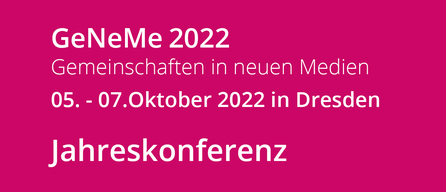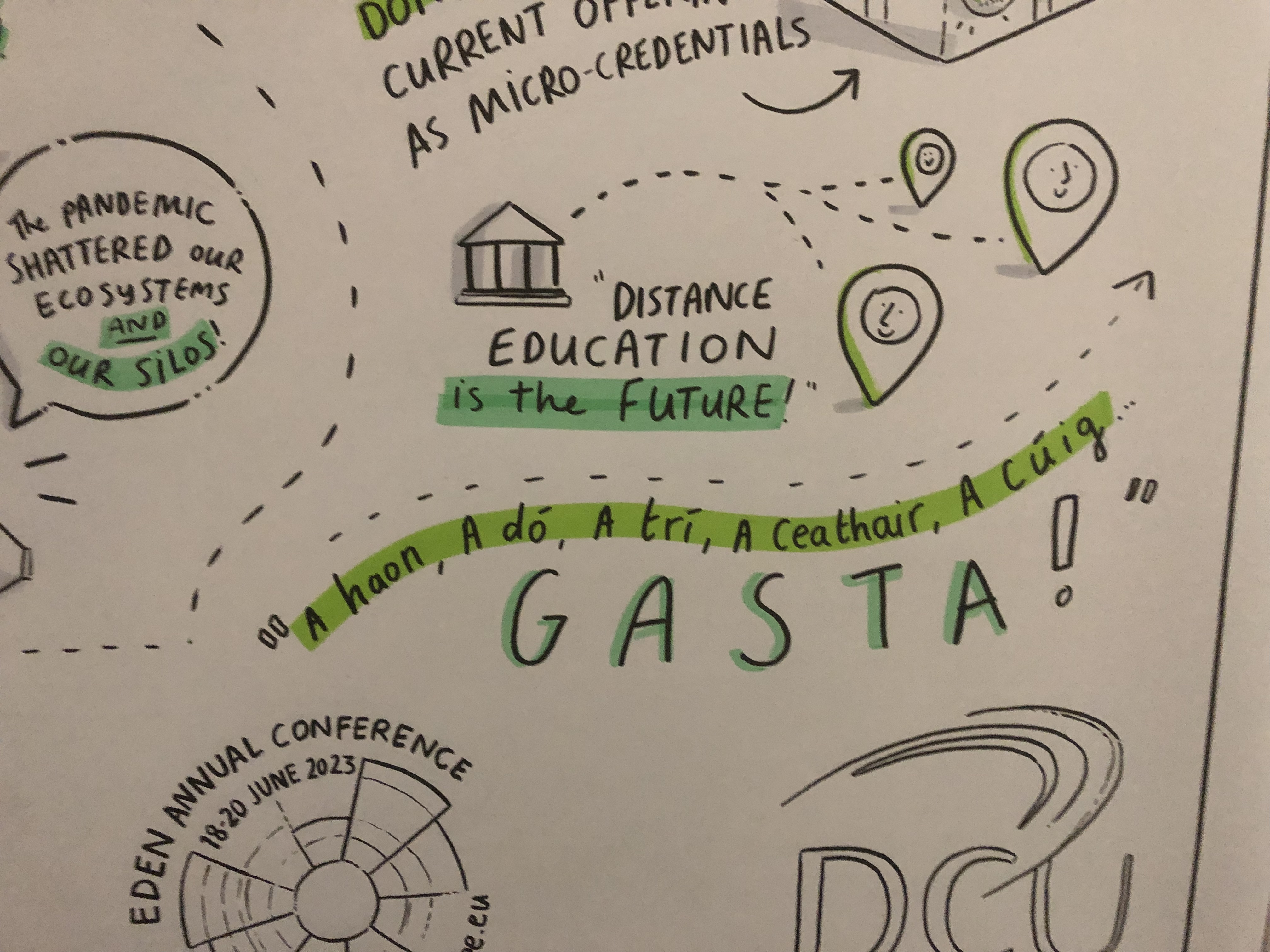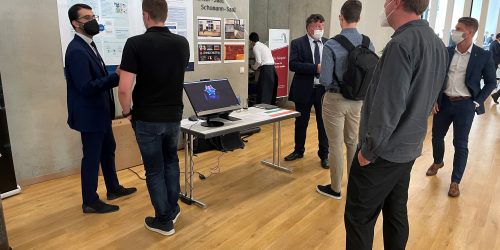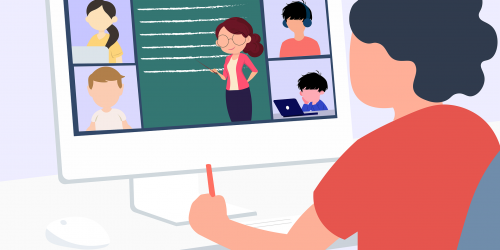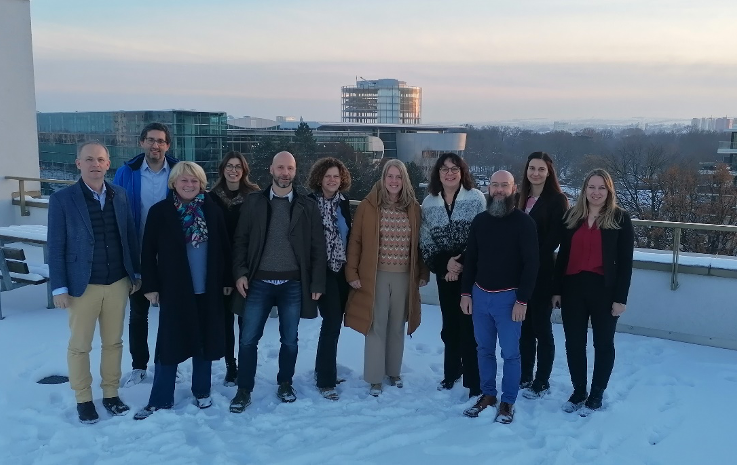Open Workshop “Educational media technology and its inclusive potential”
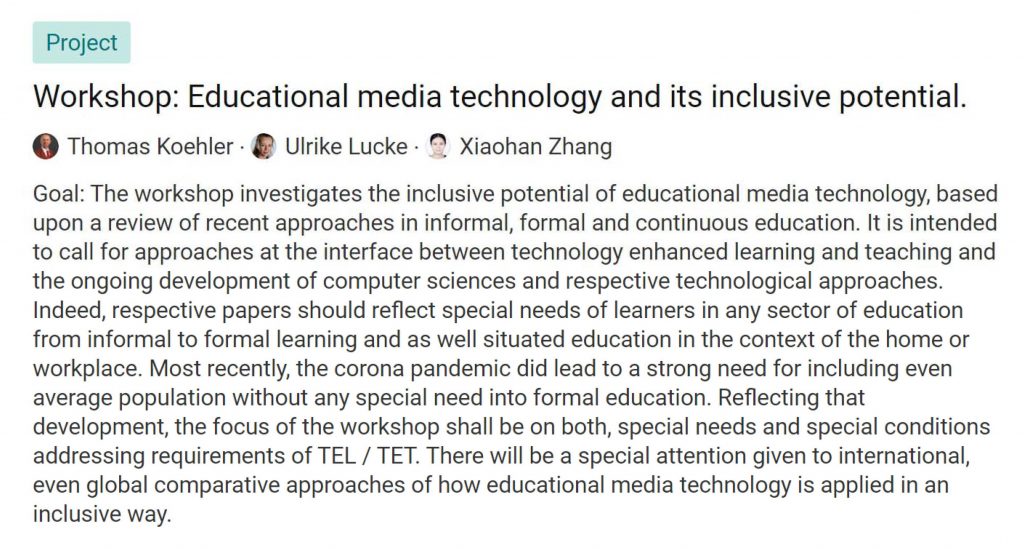 Not only with the recent corona pandemic the inclusive potential of digital media has been considered as innovative in the light of supporting accessibility and heterogeneity in any educational context. Formal education, namely general and higher education, does have a further educational mandate and is encouraged to submit innovative offers for social participation. Teaching at school and university – so that it is accessible to everyone – must be more clearly oriented than before to the individually varied learning skills and other characteristics of the individual. In particular, digitally supported forms of micro learning are taught in open offers. In addition, databased approaches to learning behaviour open up diverse and, above all, novel entries for teaching staff – cf. learning analytics and tailored training. It is suggested that the implementation of digital technologies in the educational system provides considerable benefits for inclusive education by helping pedagogues to exempt from routine work and facilitating the fulfilment of educational tasks for children with disabilities.
Not only with the recent corona pandemic the inclusive potential of digital media has been considered as innovative in the light of supporting accessibility and heterogeneity in any educational context. Formal education, namely general and higher education, does have a further educational mandate and is encouraged to submit innovative offers for social participation. Teaching at school and university – so that it is accessible to everyone – must be more clearly oriented than before to the individually varied learning skills and other characteristics of the individual. In particular, digitally supported forms of micro learning are taught in open offers. In addition, databased approaches to learning behaviour open up diverse and, above all, novel entries for teaching staff – cf. learning analytics and tailored training. It is suggested that the implementation of digital technologies in the educational system provides considerable benefits for inclusive education by helping pedagogues to exempt from routine work and facilitating the fulfilment of educational tasks for children with disabilities.
Yet to allow such shift digitalization and the use of artificial intelligence must be mastered, leading to new teaching concepts. Thus some attention is given to modularized online-based formats for the individual further development of teaching staff are to be considered in order to enable them for inclusive educational practice. While recent research deals, for example, with the user experience and the usability evaluation of personalized adaptive e-learning system using as well as the function of peer groups in response to digital exclusion of older adults it did and does address this domain not always systematically. Moreover, developments are often driven by either technological opportunities or special conditions of a specific case. Yet with the wide distribution of smart devices and its combination with new digital assistants and augmented technologies, the landscape of technical artefacts has become much more diverse, powerful and ubiquitous.
Digital technology with a fine inclusive potential is everywhere. Taking this assumption into mind the workshop intends to review recent approaches in formal and continuous education, which apply digital technologies for inclusive practices. Resultantly it is expected that both, theoretical and case based studies may contribute to a wider image of the state of the arte, providing evidence of effective measures and dysfunctional approaches as well. Conceptually the workshop does focus on educational technologies as interface between computer science and educations science, ideally located in order to detect and reflect the potential application toward inclusive practices in an inspiring way.
The open Workshop Educational media technology and its inclusive potential takes place online on Monday, 14 September 2020, as part of a full-day event. It will be hosted together with the Workshop Digitally supported inclusive practices in education and training and will present and discuss research and educational practice.
Agenda (cf. https://inclusive-edtech.dfki.de/program/)
Morning Sessions (9:00 am – 12:00 pm, CEST/UTC+2)
Hosted by Educational media technology and its inclusive potential.
- 09:00 | Introduction by workshops hosts (Ulrike Lucke, Xiaohan Zhang, Thomas Köhler)
- 09:15 | Keynote 1 – Barriers in E-Learning for People with a Sensory Disability (Gerhard Weber, TU Dresden)
- 09:45 | Discussion
- 10:00 | Keynote 2 – Personalized Intelligent Intervention and Precise Evaluation for Children with Autism Spectrum Disorder (Jingying Chen, Central China Normal University)
- 10:30 | Discussion
- 10:45 | Coffee break
- 11.00 | Panel Discussion with Keynote speakers Gerhard Weber + Jingying Chang and Workshop hosts Niels Pinkwart + Xiaohan Zhang + Thomas Köhler
Afternoon Sessions (1:30 pm – 5:00 pm, CEST/UTC+2)
Hosted by Digitally supported inclusive practices in education and training.
- 01:30 | Short introduction and presentation of main topics
- 01:45 | 1st paper session: presentation and discussion of contributions
- Susan Beudt, Berit Blanc, Rolf Feichtenbeiner and Marco Kähler
Critical reflection of AI applications for persons with disabilities in vocational rehabilitation
- Sebastian Claus and Niels Pinkwart
How to get to school, LAYA? Conducting a participatory design workshop to design and introduce an inclusive e-learning platform into secondary math classes
- Susan Beudt, Berit Blanc, Rolf Feichtenbeiner and Marco Kähler
- 02:45 | Coffee break
- 03:00 | 2nd paper session: presentation and discussion of contributions
- Ace Parsi
Promise and peril: Examining the role of Ed Tech for students with disabilities - Xiaohan Zhang, Thomas Köhler and Ulrike Lucke
The diversity of online teaching in Chinese universities during the epidemic - Josefin Mueller and Hélena Gottschalk
Diversity MOOC – Inclusion in everyday teaching. A MOOC not only for teachers at universities and schools
- Ace Parsi
- 04:30 | Wrap up, outlook and closing


